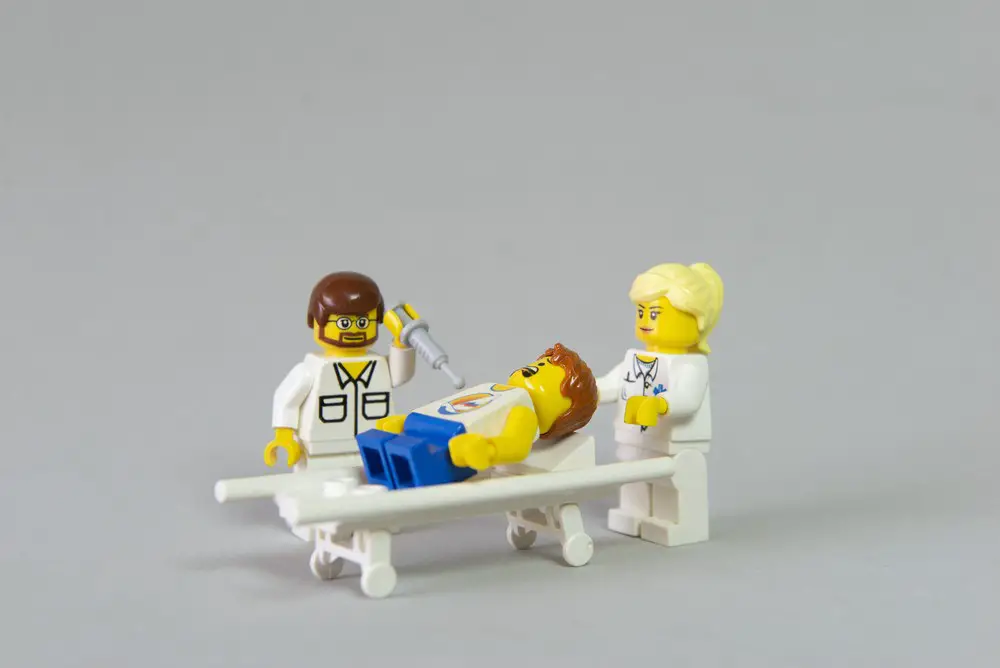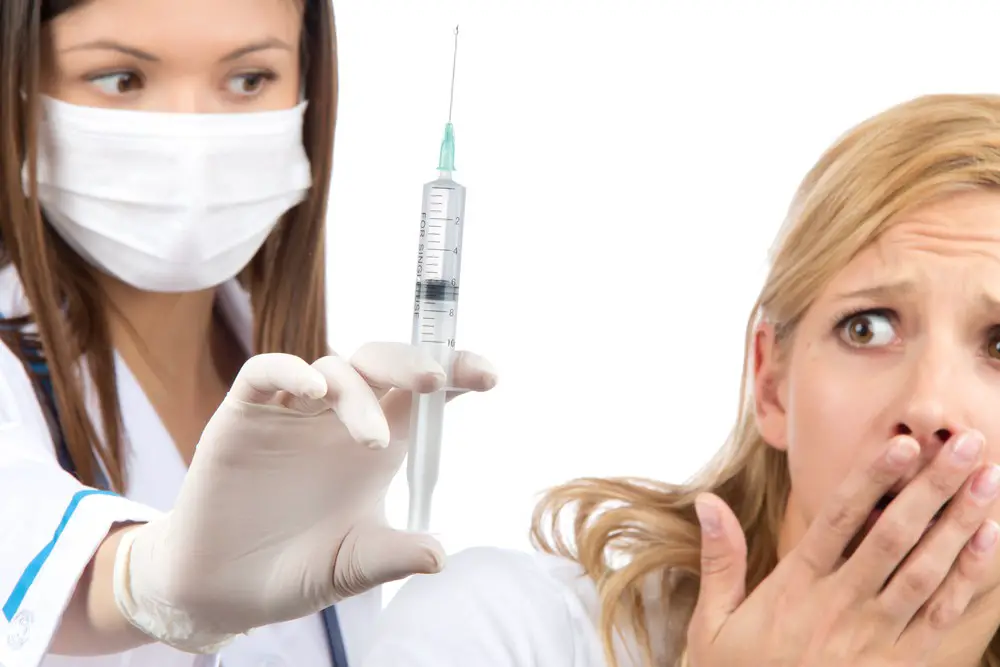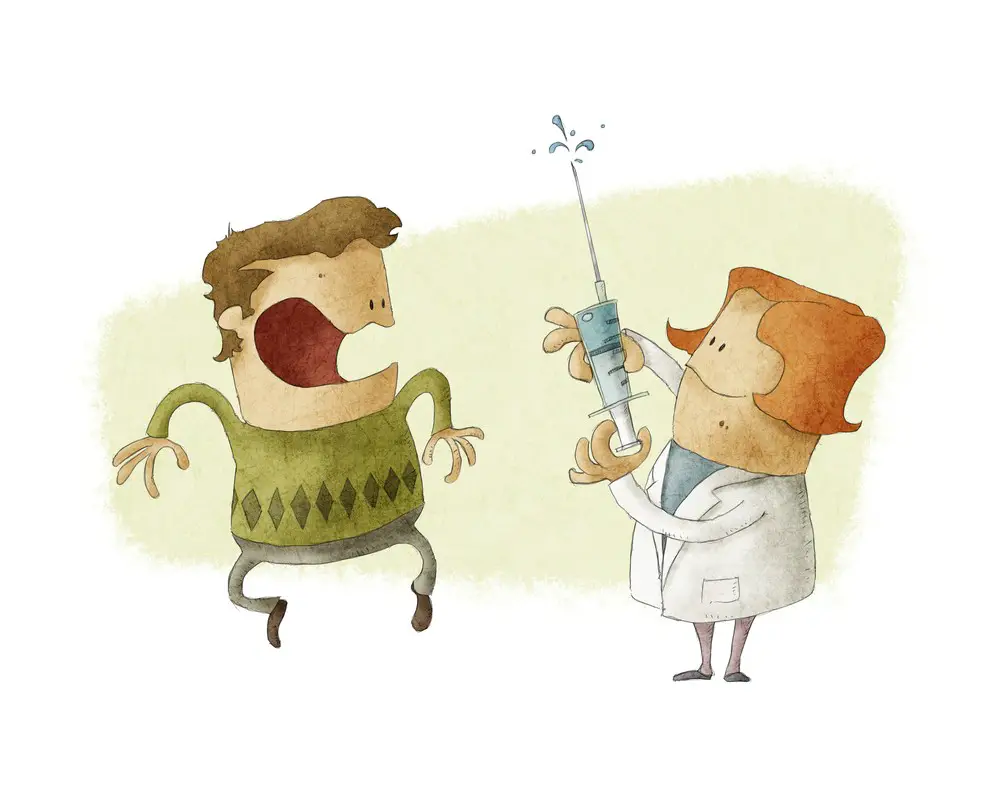Vaccines are one of the greatest inventions in modern medicine, providing us with safe and effective means of protecting us from dangerous diseases. Despite the overwhelming evidence of their efficacy, some people feel anxious about receiving vaccinations.
This phenomenon is commonly referred to as vaccine anxiety and can manifest itself in various ways.
For some, it takes the form of intense fear or dread when confronted with needles and shots. Others may experience general unease or discomfort associated with vaccinations, making them hesitant to receive them.
Some people’s anxiety related to or phobia of vaccines prevents them from getting the necessary immunizations, putting them and those around them at risk for serious illness.
Vaccine anxiety can also lead to guilt or shame when people cannot bring themselves to vaccinate due to their fear.
So why do we experience such levels of vaccine anxiety? And how can we help ourselves to overcome it?

Vaccine Anxiety May Be More Common Than You Think
While you might feel embarrassed or ashamed to admit that you feel anxious about vaccinations, it’s more common than you think.
In fact, “estimates show that as many as 2 in 3 children and 1 in 4 adults have strong fears around needles” and vaccinations, so it’s not something that only affects a few people. Further, it is thought that “as many as 1 in 10 people might delay the COVID-19 vaccine” due to their vaccine hesitancy.
Since the COVID-19 pandemic, vaccine anxiety has come to the forefront as many people grapple with dread and uncertainty about getting immunized.
So what causes millions of people to feel apprehensive about receiving vaccines?
Why Do We Get Nervous About Vaccines?
There is no definitive answer to this question since each individual will have their reasons for feeling anxious about receiving the COVID-19 vaccine, or any other vaccine, for that matter.
However, a few common causes may generally contribute to these feelings.
Anxiety Disorders
Generalized anxiety disorder, or GAD, is marked by persistent worry and irrational fear. It can affect how people think, feel and act as they try to process their worries.
People who suffer from GAD often focus on worst-case scenarios and adverse events, making them particularly vulnerable to becoming anxious about vaccinations.
Health anxiety is similar in many ways to GAD, but with an added focus on physical symptoms or illnesses. People with health anxiety often fear getting sick, so the idea of receiving a vaccine can cause them to experience intense anxiety and dread.

Phobia of Needles
Phobia of needed (trypanophobia) is one of the most common causes of vaccine anxiety. Many people suffer from a fear or discomfort around needles, which can make it difficult for them to get immunized without feeling any distress.
This phobia is often rooted in childhood fears that never completely disappear, making it challenging to overcome.
Fear of the Unknown
Fear of the unknown affects everyone to some degree; however, it can manifest as a panic disorder for others.
Not knowing the long-term side effects can be a source of great anxiety for many people. Vaccines are still relatively new, and there is not much information available regarding their potential long-term effects, which can leave some feeling overwhelmed and uncertain.
Negative Media or Social Media Stories
One of the most common causes of vaccine hesitancy today is the influx of negative media and social media stories about vaccines.
People often hear horror stories about adverse events and reactions to immunizations, which can fuel their anxiety and lead them to question or avoid getting vaccinated altogether.
It’s important to remember that these stories are typically unverified and sensationalized, and they should not be taken as absolute truth.
The good news is that there are several strategies that you can use to help manage your vaccine anxiety and make it easier for you to get immunized.

How to Cope with Vaccine Anxiety
Anyone struggling with anxiety symptoms or fear of needles must take time to find effective coping strategies that will help them get through the immunization process. After all, immunization practices have been developed to help protect us from disease, not to cause distress or anxiety.
Here are a few tips on managing vaccine anxiety:
Educate Yourself on the Benefits of Vaccines
If you suffer from fear of the unknown, researching the safety and effectiveness of vaccines can help reduce your anxiety.
It is essential to seek reliable sources of information such as the Centers for Disease Control and Prevention (CDC) or the World Health Organization (WHO). You could also consult a doctor or healthcare provider to get a professional opinion on vaccine safety and efficacy.
Find a Support System
Sufferers of anxiety disorders are strongly encouraged to discuss their feelings and experiences with friends, family members, or mental health professionals.
Having a support system that understands your struggles can be incredibly helpful in alleviating some of the distress associated with vaccines.
Seek Professional Help if Needed
If you’re struggling to cope with your anxiety by yourself, it is best to reach out to mental health care providers specializing in anxiety and panic disorders.
These professionals can provide valuable insight into coping strategies and help identify any underlying issues that might fuel your vaccine-related anxieties.
Patient health and safety should be of the utmost priority for healthcare providers. Finding effective ways to manage vaccine anxiety can help ensure that people get the immunization they need.
How to Calm Yourself Down Before Receiving a Vaccine
In the short term, there are several steps you can take to help yourself relax before getting vaccinated.
One of the most effective ways to cope with vaccine anxiety is to take slow, deep breaths when feeling overwhelmed or anxious. This helps slow your heart rate and gives your body a chance to relax.
Visualizing positive outcomes can also help you calm down before receiving a vaccine. Close your eyes and imagine yourself feeling calm, safe, and secure – this can help reduce stress levels.
Regularly keeping up with relaxation practices can also be beneficial in managing vaccine anxiety, as it will help you to stay relaxed during immunization appointments. Practices like yoga and meditation work to give you an overall sense of well-being and better control over your emotions.
Summary: Fighting Through Your Vaccine Fears
Vaccines play a critical role in protecting public health, and finding effective ways to manage our fears and anxieties associated with them is essential.
Although vaccine anxiety can sometimes be overwhelming, it is possible to cope and get the immunization you need. Understanding where your fears have sprouted can help you identify and challenge any irrational beliefs.
And there are mental health care workers that you can find support from if needed. Tackling these anxieties can also be made easier by taking slow, deep breaths beforehand and engaging in calming practices like yoga and meditation.
Vaccines are a powerful tool in the fight against infectious diseases, and taking the proper steps to manage your fears can help ensure that you get the immunization you need.
FAQs
- Is It OK to Put Baby to Sleep Without Burping? Unveiling the Facts - February 13, 2024
- How To Get Rid Of Anxiety Forever: Long-Term Strategies For Well-Being - February 13, 2024
- How to Sleep with Curly Hair: Overnight Curls Care Tips - February 13, 2024
This site contains affiliate links to products. We will receive a commission for purchases made through these links.



